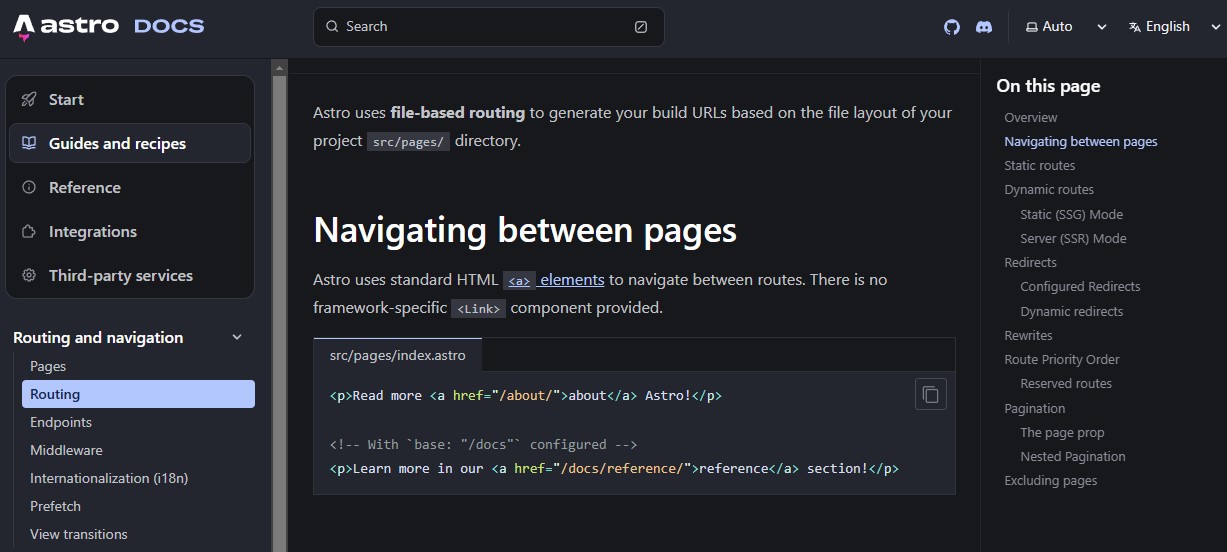Dynamic Routing in Astro
One of Astro’s powerful features is its support for dynamic routing, which allows you to create pages based on dynamic data. This is perfect for blogs, e-commerce sites, and any application where you need to generate many pages with a similar structure.
Understanding Dynamic Routes
In Astro, you can create dynamic routes using square brackets in your file names. For example, a file named src/pages/blog/[slug].astro will generate a route for each blog post, where [slug] is replaced with the actual slug of the post.
Implementing Dynamic Routes
Here’s how to implement dynamic routing for a blog:
- Create a file at
src/pages/blog/[slug].astro - Use
getStaticPaths()to define all possible routes - Access the dynamic parameter via
Astro.params
Here’s an example:
---
import Layout from '../../layouts/Layout.astro';
import { getCollection } from 'astro:content';
// Generate paths for all blog posts
export async function getStaticPaths() {
const blogEntries = await getCollection('blog');
return blogEntries.map(entry => ({
params: { slug: entry.slug },
props: { entry },
}));
}
// Get the blog post data
const { entry } = Astro.props;
const { Content } = await entry.render();
---
<Layout>
<article>
<h1>{entry.data.title}</h1>
<Content />
</article>
</Layout>Using Content Collections
Astro’s Content Collections feature works perfectly with dynamic routes. You can:
- Define your content schema in
src/content/config.ts - Store your content in the appropriate collection folder
- Query the collection to generate your dynamic routes
Benefits of Dynamic Routing
Dynamic routing offers several advantages:
- DRY Code: Write the page template once and reuse it for all content
- Maintainability: Update the layout in one place
- Performance: Astro pre-renders all pages at build time for optimal performance
- SEO-friendly: Each page gets its own URL, making it discoverable by search engines
Advanced Techniques
You can also use multiple dynamic parameters in a single route, such as [category]/[slug].astro. This allows for even more flexible routing structures.
Additionally, you can use rest parameters with [...path].astro to catch all remaining path segments, which is useful for creating catch-all routes.
Conclusion
Dynamic routing in Astro provides a powerful way to generate multiple pages from a single template. Combined with Content Collections, it creates an excellent system for managing blog posts, product pages, or any content-driven website.
Try implementing dynamic routes in your next Astro project!
